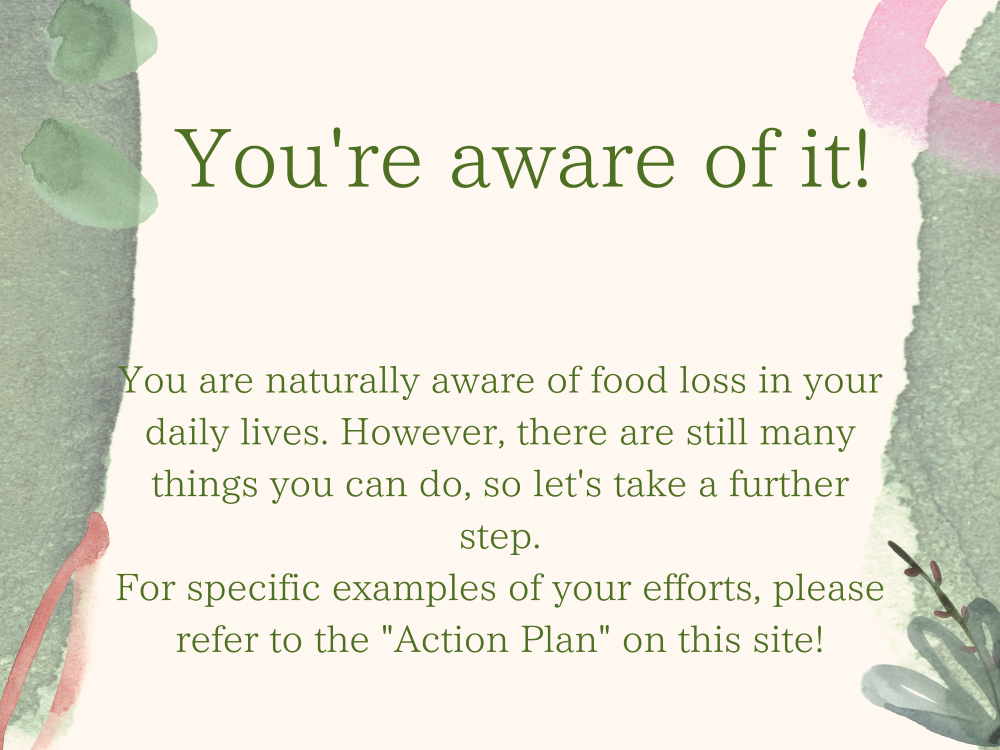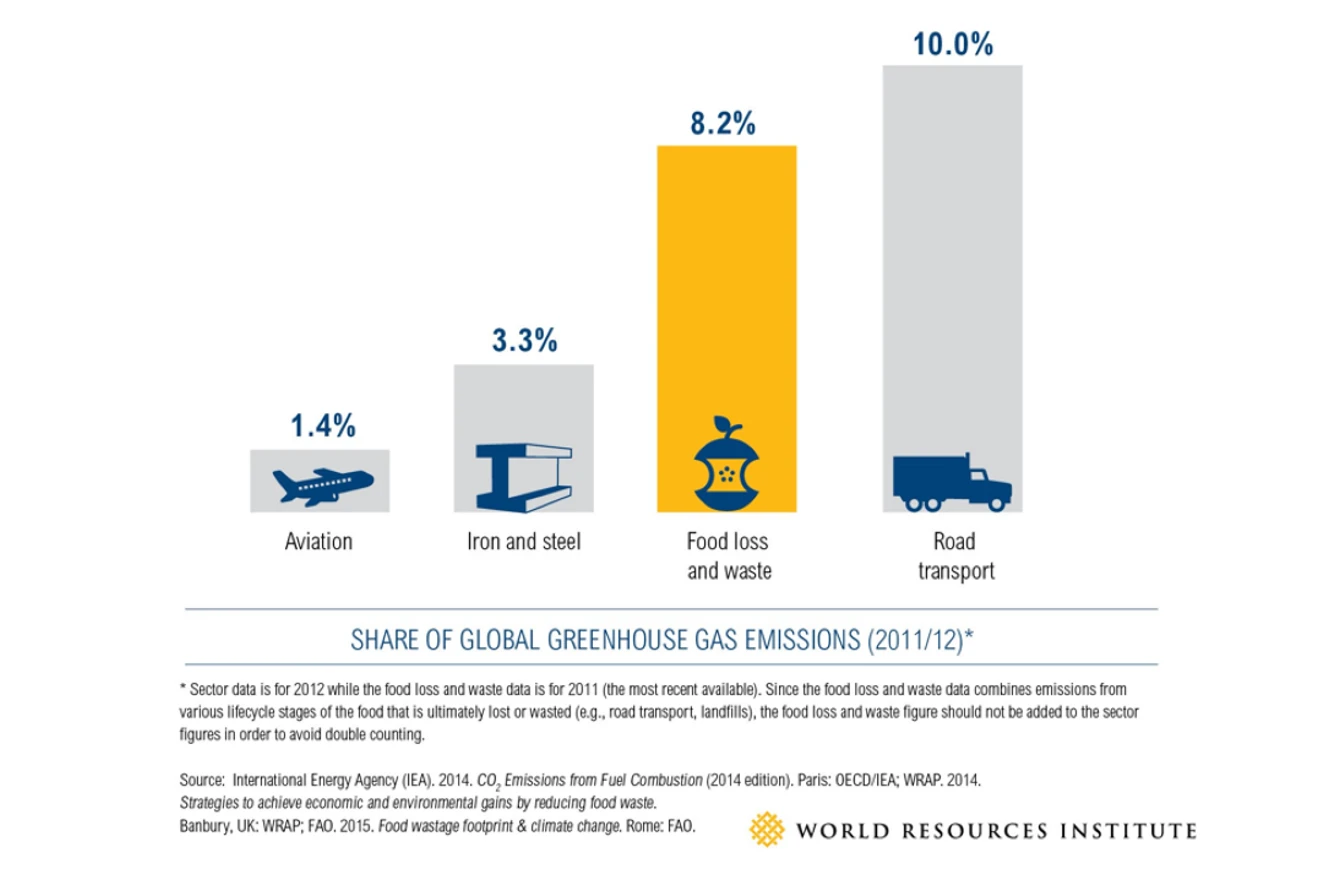

In this page, we introduce in detail the current situation of food loss, its causes, and measures taken by the government, from the basic to the lesser known. First of all, let's take a food loss awareness test!
What is food waste?
How much do you know about food loss?
I think there are many people who don't know what exactly is wrong. Let's take a closer look at food loss.
Food Was Diagnosis

First, let's do a food loss awareness assessment!
Check the boxes that apply to you, and count the number of checks.
I try not to eat leftovers.
When I buy food at the supermarket or convenience store, I take the food from the front.
I eat leftover food the next day or freeze it.
I think about the expiration dates of the food in my house and prioritize eating the closest ones.
I actively use the services of companies that are trying to reduce food loss.
I encourage my family and friends not to leave any food behind.
I think food loss is a serious problem and should be improved.


Causes of food waste
Household food loss

食品ロスの約半分は家庭内で発生するです。About half of all food loss is household food loss generated in the home.Specifically, this includes leftovers, expired (best-before) dates, and over-cutting.
As you can see in the picture on the left, many people will throw away the stems of broccoli without eating them, but since broccoli stems are edible, this is "food loss.
Business food waste
The other half is business-related food lossgenerated by farmers, food processing plants, and retailers such as supermarkets and convenience stores.
The one-third rule is one of the major causes of business-related food loss.
The one-third rule is an unspoken rule that exists in the food industry. The rule of thirds is an unspoken rule that exists in the food industry, dividing the period from the date of manufacture to the expiration date into three equal parts, each of which must be met before the product can be sold. This rule was introduced in the 1990s and has existed as an unspoken rule ever since. However, since it has no legal effect at all, it has been reviewed in recent years in line with the movement to reduce food loss.
Other causes of business-related food loss include overcooking and leftovers at restaurants.
National measures
"Law on the Reduction of Food Loss"
In recent years, the government has started to solve the problem of food loss. A major pillar of this effort is the "Law on the Reduction of Food Loss".Law on the Reduction of Food Loss
The basic policy based on the Law for the Promotion of Food Loss Reduction was approved by the Cabinet in March 2019, coming into effect on October 1, 2019. The government has decided to promote cooperation in efforts to reduce food loss, while prefectures and municipalities will promote their own regional initiatives.
- ・Based on the basic policy of the national government, prefectures and municipalities formulate reduction promotion plans and implement measures.
- ・Public awareness for consumers and businesses
- ・Supporting the efforts of businesses to reduce food loss
- ・October is designated as "Food Loss Reduction Month" and October 30 as "Food Loss Reduction Day" every year.
- ・Supporting Food Bank Activities
Setting of target values

The impact of food waste on society
Why is it "wrong" to throw away food?Let's take a closer look at what exactly are the negative effects of throwing away food.
It's leading to environmental destruction!

Food loss is a problem that also leads to environmental destruction. When food is disposed of, carbon dioxide is emitted. When food is disposed of, carbon dioxide is emitted, amounting to 3.6 billion tons worldwide, or about 8% of all emissions.
As you can see from the graph on the left, this 8% is about 5.7 times the amount of carbon dioxide emitted by airplanes.
In other words, the increase in food loss will ultimately contribute to global warming.
In addition, the cultivation of land to increase food production leads to deforestation and the over-consumption of natural resources.
When we "throw away" food, we are destroying the environment.
That there are many people in the world who are struggling for food.

Currently, one in nine people in the world suffers from hunger. Furthermore, the world population is expected to increase in the future, and the food shortage is said to become more serious.
What if we, the developed countries, could send the food losses we throw away to the starving people?
This is a problem that we, as generators of food loss, need to face.


